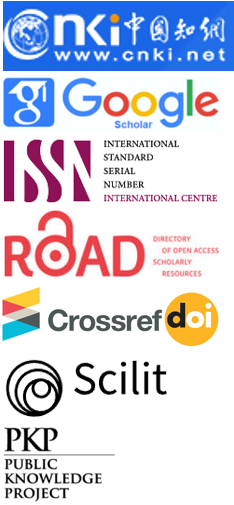Liability of the Mortgagor Who Cannot Register the Real Estate Mortgage From the Outset
DOI:
https://doi.org/10.71204/1vgaf720Keywords:
Real Estate Mortgage Guarantee, Mortgage Registration, Liability For Breach of ContractAbstract
This article takes the Supreme People's Court Guiding Case No. 168 as the research object to explore the legal liability of real estate mortgagors when they are unable to register mortgages initially. The study points out that according to Articles 402 and 577 of the Civil Code, when the mortgage contract is valid but the mortgage right is not established, the mortgagor only bears the liability for breach of contract rather than the guarantee liability.Through normative interpretation and empirical analysis, it is found that in judicial practice, it is necessary to combine the fault offset rule (Article 592) and quantify the proportion of liability reduction according to the intensity of the bank's review obligation and the degree of fault. The innovation of the research lies in demonstrating the nature of the mortgagor's obligation to assist in registration from the perspective of the “bilateral contract obligation group”, and proposing the judgment standard of “the scope of liability does not exceed the guarantee liability when the mortgage right is established”, providing theoretical support for judicial practice.
References
Gao, S. & Luo, S. (2020). Interpretation of the rules on the effectiveness of real estate mortgage rights in the "Civil Code". Social Science Research, (5), 27-37.
Gebizlioglu, O. L., & Ozturkkal, A. B. (2018). Predictive modeling and expectable loss analysis for borrower defaults of mortgage loans. Modern Accounting and Auditing (English Edition), 5, 231-251.
Gete, P.,& Zecchetto, F. (2018). Distributional implications of government guarantees in mortgage markets. The Review of Financial Studies, 31(3), 1064-1097.
Han, J. (2023). Real estate mortgage expiration rights: Experience and enlightenment of French law. Journal of Shanghai University of Political Science and Law (Legal Forum), 38(3), 151-160.
Huang, Y. (2019). Research on risk management of personal housing mortgage loans of commercial banks in my country [Doctoral dissertation]. Southwestern University of Finance and Economics.
Li, A. (2021). New rules on real estate mortgage in the Civil Code and the response of commercial banks. Banker, No. 248(9), 138-141.
Lin, W. (2021). New developments in the application of real estate mortgage system law: Centered on the “Judicial Interpretation of the Guarantee System” of the Civil Code. Legal Application, No. 470(5), 19-27.
Liu, Z. (2017). The nature and liability of signing a land use right mortgage contract without mortgage registration. People's Justice, (20).
Sun, S. (2023). Research on the effectiveness of mortgage contracts of unregistered real estate [Master’s thesis]. Hebei University of Science and Technology.
Wang, Y. (2022). Changes in mortgage registration in Beijing after the implementation of the Civil Code. China Real Estate, (25), 65-68.
Wang, Y. (2022). On the validity of real estate mortgage contracts when mortgage registration is not completed: A review of Article 46 of the “Interpretation of the Guarantee System in the Civil Code”. Modern Jurisprudence, 44(1), 109-124.
Yang, D. (2019). The dual effects of mortgage contracts as encumbrances. Chinese and Foreign Law, (13),1-5.
Yao, D. (2023). Research on legal liability of mortgagors of unregistered real estate [Master’s thesis]. Yanshan University.
Zhao, Y. (2018). Review and analysis of legal issues in mortgage loan contracts. Legal System and Society, (2), 88-89.
Zhao, Z. (2024). On the legal effect of unregistered real estate mortgage contracts: Focusing on Article 46 of the “Interpretation of the Guarantee System”. Journal of Yibin University, 1-14. [Online]. (Accessed February 24, 2024).
Downloads
Published
Data Availability Statement
Not applicable.
Issue
Section
Categories
License
Copyright (c) 2025 Mengting Mao (Author)

This work is licensed under a Creative Commons Attribution 4.0 International License.
All articles published in this journal are licensed under the Creative Commons Attribution 4.0 International License (CC BY 4.0). This license permits unrestricted use, distribution, and reproduction in any medium, provided the original author(s) and source are properly credited. Authors retain copyright of their work, and readers are free to copy, share, adapt, and build upon the material for any purpose, including commercial use, as long as appropriate attribution is given.





